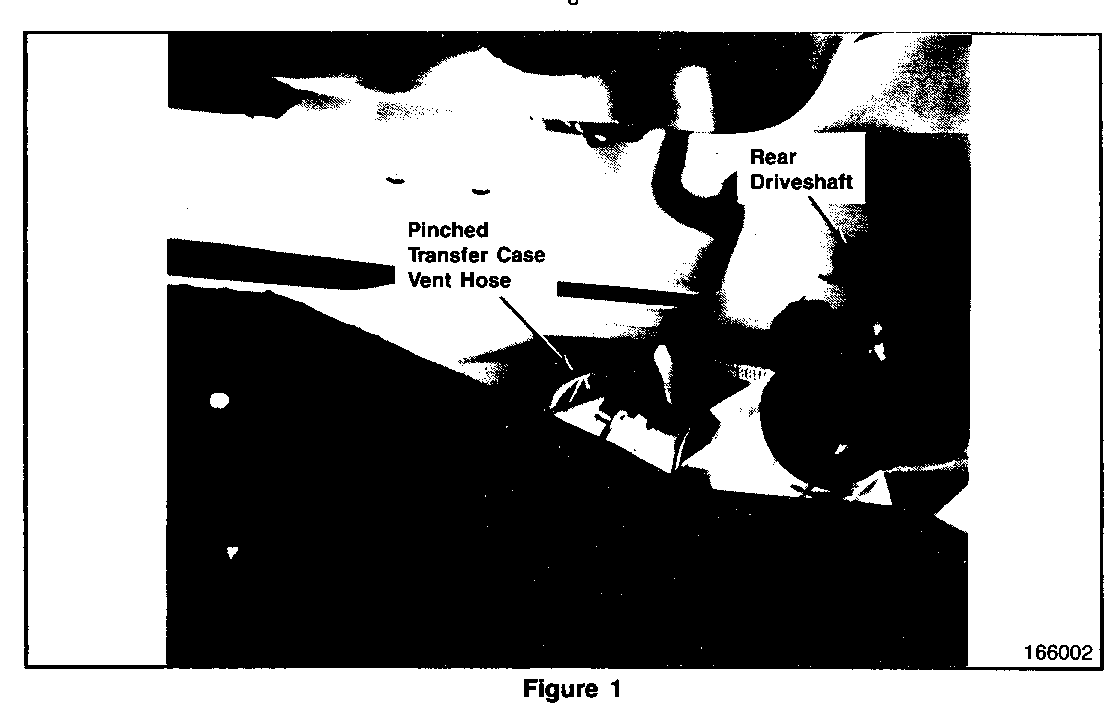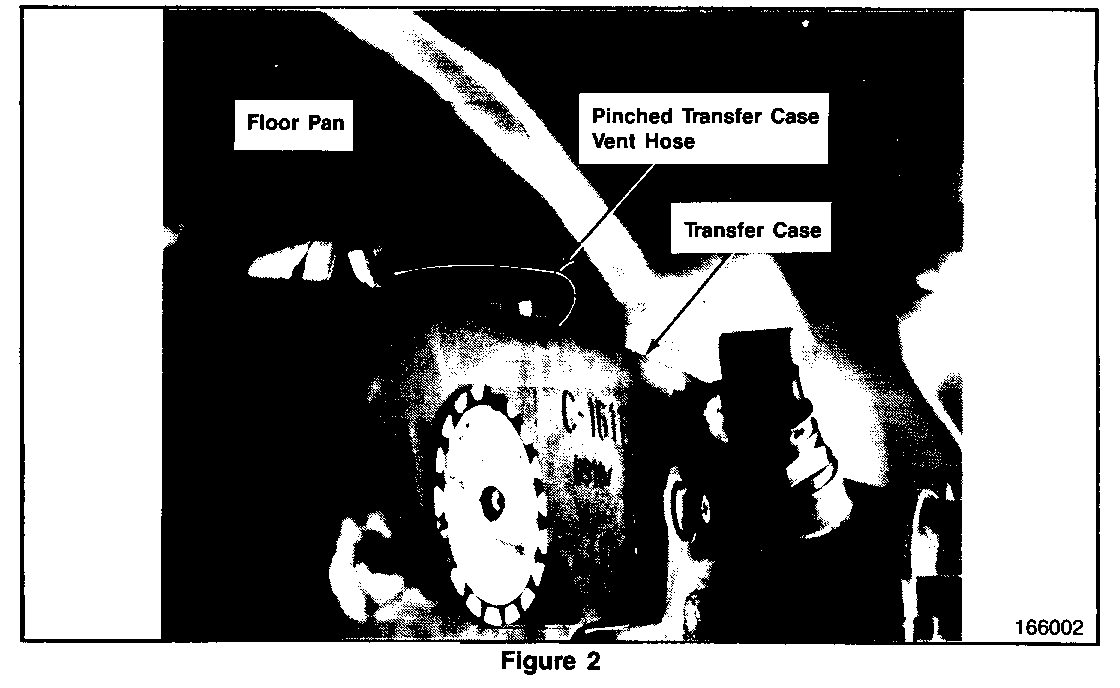ENGINE VIBRATION AT 1800-2000 RPM (T-CASE VENT HOSE PINCHED)

SUBJECT: ENGINE VIBRATION-PINCHED TRANSFER VENT HOSE (REPLACE HOSE)
VEHICLES AFFECTED: 1990-91 'T' TRUCKS AND UTILITY VEHICLES WITH 4.3L ENGINES
Some 1990-91 "T" trucks equipped with the 4.3L (LB4) engine may experience a vibration condition at approximately 1800-2000 rpm. This vibration can be induced by raising the engine rpm while the transmission is in park or neutral. The vibration may be felt throughout the entire vehicle, however, it may be most noticeable in the console area of the floorpan. It may be described as a "grounding out " .
If this condition is encountered, it may be caused by the transfer case vent hose being pinched between the top of the transfer case and the bottom of the floor pan refer to Figures 1 and 2). When this condition exists, engine vibrations are transferred directly to the body.
Verify the routing location of the hose. If the hose is routed over the top of the transfer case, check to see if it can be moved freely. If it can be moved freely, it probably is not causing the vibration being felt when the transmission is in park or neutral. However, as a result of engine torque, it may transmit a vibration under hard acceleration. Remove the hose and inspect it for chaffing or damage and replace if necessary. Reposition the hose off to the left side of the transfer case so that it does not rub against the floor pan.
If the hose is pinched and cannot be removed, follow the service manual procedure for removal of the rear transmission mount to the crossmember. With the mount removed, lower the transmission and transfer case assembly until there is enough room to remove the pinched hose. Remove the hose and inspect it for chaffing or damage and replace if necessary.
Reposition the hose off to the left side of the transfer case so that it does not rub against the floor pan. Follow the service manual procedure for reinstallation of the mount and torque fasteners to the appropriate specifications.
NOTE: Colder ambient temperatures can cause hoses to become more rigid (less flexible) and better capable of transmitting a vibration when pinched. This, combined with how severely the hose is pinched, may cause the vibration to be more noticeable at engine RPM's other than that listed.


General Motors bulletins are intended for use by professional technicians, not a "do-it-yourselfer". They are written to inform those technicians of conditions that may occur on some vehicles, or to provide information that could assist in the proper service of a vehicle. Properly trained technicians have the equipment, tools, safety instructions and know-how to do a job properly and safely. If a condition is described, do not assume that the bulletin applies to your vehicle, or that your vehicle will have that condition. See a General Motors dealer servicing your brand of General Motors vehicle for information on whether your vehicle may benefit from the information.
